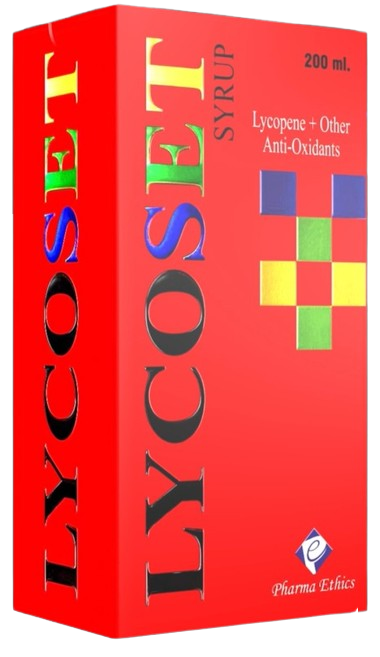LYCOPENE
Your tomatoes are red because they contain Lycopene. Lycopene is a bright red carotenoid hydrocarbon with many health benefits. It is also found in other fruits and vegetables, such as red carrots, watermelons, and papayas.


Benefits of Lycopene
(More details on constituents)
(1) According to Przybylska, S., & Tokarczyk, G. (2022), Lycopene supplementation is effective in improving systolic blood pressure (SBP) at a dose of ≥15 mg/day. Lycopene has an antihypertensive effect by inhibiting the angiotensin converting enzyme (ACE) and, due to its antioxidant effect, reduces the oxidative stress induced by angiotensin II and indirectly increases the production of nitric oxide in the endothelium1.
(2) A review study by Kapala et al. (2022) reported that Lycopene can improve the treatment outcomes of locally advanced prostate cancer and reduce prostate cancer-specific mortality in men at high risk for prostate cancer. The reported mechanisms of lycopene action in vivo included regulation of oxidative and inflammatory processes, induction of apoptosis, and inhibition of cell division, angiogenesis, and metastasis formation2.
(3) Leh, H. and Lee, K. (2022) reported that there is a significant reduction in plasma glucose and fasting insulin concentrations with increased serum lycopene in T2DM (Type 2 Diabetes Mellitus) patients. Fasting plasma glucose (FPG) levels decreased significantly with the higher lycopene intake3.
(4) According to Sharma, J. et al., (2003), Lycopene is very effective in significantly reducing the occurrence of pre-eclampsia and intra-uterine growth retardation, as significantly lower levels of lycopene and canthaxanthin were found in maternal serum and placentas of pre-eclamptic women than in normotensive women>4.
(5) A review study by Durairajanayagam et al. (2014) reported that lycopene supplementation has shown promising results in alleviating male infertility; lipid peroxidation and DNA damage were decreased, while sperm count and viability, and general immunity were increased. Therefore, increasing the chances of successful fertilization of the oocyte and better embryo development5.
(References link)
Lycopene
- Przybylska, S., & Tokarczyk, G. (2022). Lycopene in the Prevention of Cardiovascular Diseases. International journal of molecular sciences, 23(4), 1957. https://doi.org/10.3390/ijms23041957
- Kapała, A., Szlendak, M., & Motacka, E. (2022). The Anti-Cancer Activity of Lycopene: A Systematic Review of Human and Animal Studies. Nutrients, 14(23), 5152. https://doi.org/10.3390/nu14235152
- Leh, H. E., & Lee, L. K. (2022). Lycopene: A Potent Antioxidant for the Amelioration of Type II Diabetes Mellitus. Molecules, 27(7), 2335. https://doi.org/10.3390/molecules27072335
- Sharma, J. B., Kumar, A., Kumar, A., Malhotra, M., Arora, R., Prasad, S., & Batra, S. (2003). Effect of lycopene on pre-eclampsia and intra-uterine growth retardation in primigravidas. International journal of gynaecology and obstetrics: the official organ of the International Federation of Gynaecology and Obstetrics, 81(3), 257–262. https://doi.org/10.1016/s0020-7292(03)00040-7
- Durairajanayagam, Damayanthi & Agarwal, Ashok & Ong, Chloe & Rohela, Pallavi. (2014). Lycopene and male infertility. Asian journal of andrology. 16. https://doi.org/10.4103/1008-682X.126384
